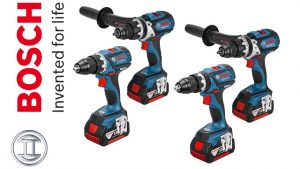A generator is probably your best friend during an extended power outage or if you have to use power tools on a site with no electrical connections. It can last for decades, but it also requires proper maintenance and care. Just like it’s important to eat healthily and exercise, this piece of equipment also needs maintenance to prevent it from breaking down. The better the maintenance, the longer it will function without the need for extensive repairs, which can translate into a hefty price tag on replacement parts or a new unit. The following tips are just to ensure that your electrical generator is safe and ready to start up when your power goes down.
Purchase a warranty or backup generator
This might be self-explanatory, but investing in a warranty might be the best way to protect yourself when the power runs out as generators aren’t exactly cheap. Get to know the coverage of your warranty; it may be full or partial. Investing in a back-up generator can also help control your home insurance cost as well.
Invest in a cover or an enclosure
As we all know, electricity is susceptible to water and the slightest rainfall might damage a part that costs a few quid. Depending on whether your generator is a standby model or portable one, investing in a cover or enclosure will be dependant on the type of generator you have. Another cheap and effective way for home users is to build a generator garage at home, which is similar to that of a doghouse for a portable generator.
Check your oil
Make sure you check the oil before each use. If your generator just came out of the box, change the oil after the first 20 hours of operation to remove assembly lube and metallic particles created during the break-in period. Otherwise, you can change the oil every 100 hours or sooner if operating in dirty conditions.
Keep your fuel clean
Dirty fuel is a result of improper storage and refilling tanks in dusty conditions. To prevent this from happening, store your fuel in a cannister or receptacle that meets the HSE’s requirements and keep it away from high-traffic areas. Also, don’t attempt to refill in windy conditions where dust is more prevalent.
Keep it clean
Cleaning the engine removes potentially harmful dirt and gives the operator a chance to spot service concerns. Don’t use a pressure washer, as it could damage the equipment. Instead, use an air supply to blow off any dust and a clean rag with degreaser to wipe off excess dirt and grease.
Check for leaks
When your generator is clean and try, check for any oil leakage. If a leak is spotted, tighten the parts causing the leak or replace them immediately.
Tighten up any loose ends
Cleaning the engine will also help to reveal any obvious damage or loose parts. Take time to tighten them up as they could vibrate and potentially ham nearby components.
Keep the spark
Inspect the spark plugs every 100 hours for damage, oil residue, and excessive carbon build up. If you find any residue or carbon build up, clean with a wire brush or a spark plug cleaner. Immediately replace any plugs that have cracked porcelain.
Avoid clogging the fuel strainer
Clean and inspect the fuel strainer located in the fill port of the fuel tank every month. If there is sediment in the fuel strainer, clean and return, or replace it if torn.
Prevent motor burn-out at all times
Make sure you use heavy-duty cords for less voltage use which can also prevent premature burn-out. Lighter cords increase the voltage. Since these they are so noisy, investing in a longer cord for uninterrupted sleep or keeping your hearing might be a good idea.
Start your generator every three months
Most manufacturers will recommend running your generator every three months for about 30 minutes to charge the battery for the electric starter. The last thing you’ll want is to discover that your electric starter isn’t working when you need it to.
Keep your tank filled up
You can avoid damaging your generator by keeping your generator fuelled up. When a generator runs dry, it stops the power while the electrical load in your home or equipment will suck the magnetic field from the generator itself.
Keep spare oil and filters around
The last thing you want to be doing is shopping for a new oil or filter during a long power outage. It would be best to keep a supply around when you need it.
Do your research
You don’t want to purchase a generator that will exceed the maximum capacity that your generator is able to put out. Be sure to read the ratings before buying a generator. There’s the higher “maximum” or “starting” rating or the “rated” or “continuous” watts. If you buy a generator for the higher power level, it will only run for a short time and at that level. At the end of the day, that generator won’t extend its running capacity, and you’ll be cut off – scrambling to find another generator.
Depending on your requirements, a piece of equipment like this might be extremely helpful on a building site or during prolonged periods without any electricity. Taking good care of your equipment will ensure that it serves you for years to come.










